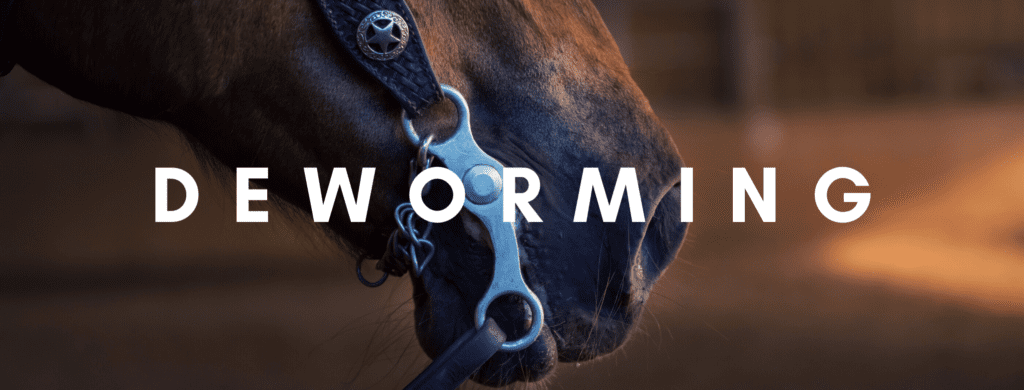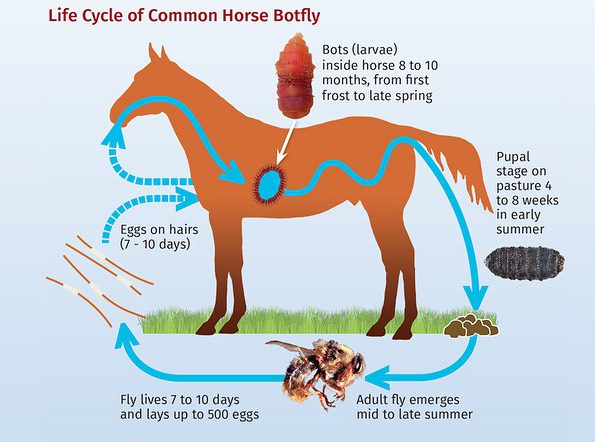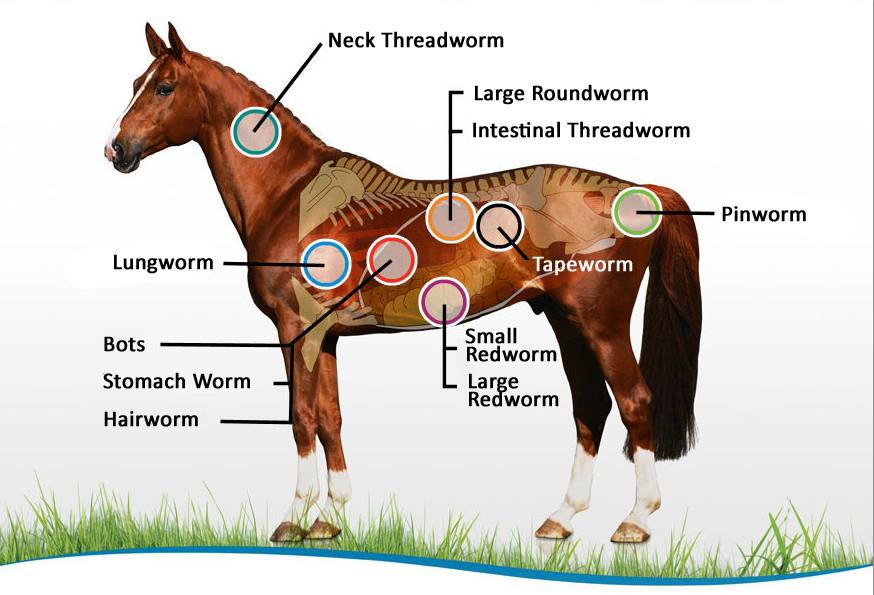Deworming

Targeting Common Equine Parasites: A Tailored Approach to Deworming
Intestinal parasites pose significant health risks to horses by causing harmful gut inflammation. This inflammation can lead to serious issues such as colic, weight loss, and a decline in overall well-being. The American Association of Equine Practitioners (AAEP) Parasite Control Guidelines recommend treating the encysted stage of small strongyles at least once per year to safeguard equine health.
At North Star Stables, we follow a tailored deworming schedule based on McMaster testing, performed throughout the year. To effectively target common parasites like small strongyles and tapeworms, we schedule an annual spring deworming, coinciding with the start of the grazing season. Horses with McMaster egg counts exceeding 200 eggs per gram (epg) receive additional deworming treatments as needed.
The Threat of Botflies: Additional Annual Deworming
In addition to common intestinal parasites, botflies pose a significant risk to both horses and pastures. Without intervention, botfly larvae can attach to the mucosal lining of the stomach, disrupt food flow, cause colic, and lead to ulcers or even stomach perforations.
The botfly lifecycle spans about a year, with adult botflies active from late spring to late fall until the first killing frost. A consistent yearly deworming program helps disrupt this cycle, reducing the risk of infestation and protecting both horses and their environment.
Here’s how the botfly lifecycle affects your horse:
- Egg Laying: A single female botfly can lay between 150 and 1,000 eggs, often on the horse’s legs, chest, or other areas the horse can lick. These eggs become ready to hatch within 7-10 days but remain dormant until stimulated.
- Activation and Ingestion: Eggs hatch when the horse licks or bites the area where they are laid. The warmth and moisture of the horse’s mouth trigger the eggs to hatch instantly, releasing larvae. During this period, the irritation may cause the horse to rub its face against objects in an attempt to alleviate discomfort, which can lead to further injury or abrasions.
- Migration to the Stomach: The larvae travel down the esophagus and into the stomach, where they attach themselves to the stomach lining. Here, they can interfere with food passage, cause stomach lesions, and create sites for secondary infection.
- Larval Development: The larvae remain attached to the stomach wall for 8-10 months, maturing and potentially causing discomfort or damage, including restlessness as they move to the rectum before being passed in the feces.
- Pupation and Adult Emergence: Once expelled with the horse’s manure, larvae burrow into the soil to pupate. After 20-70 days, adult botflies emerge from the pupae, restarting the cycle.

To combat these parasites, North Star Stables uses Zimecterin Gold, a trusted, broad-spectrum dewormer paste containing ivermectin and praziquantel. This treatment is effective against 47 species and stages of equine parasites, including botfly larvae and tapeworms, which are often difficult to detect but can cause significant health issues. All horses boarding at North Star Stables are dewormed on the same day to maintain consistency and minimize pasture contamination to help keep our boarding facility and equine boarders safe and healthy.
Have Questions? We’re Here to Help!
If you have questions about any of our deworming plans please contact us at 910-858-2525, ext. 3 to reach our Equine Department. A technician will respond within 24-48 business hours.
At North Star Stables, we prioritize the health and safety of every horse,
ensuring a happy and thriving herd.





